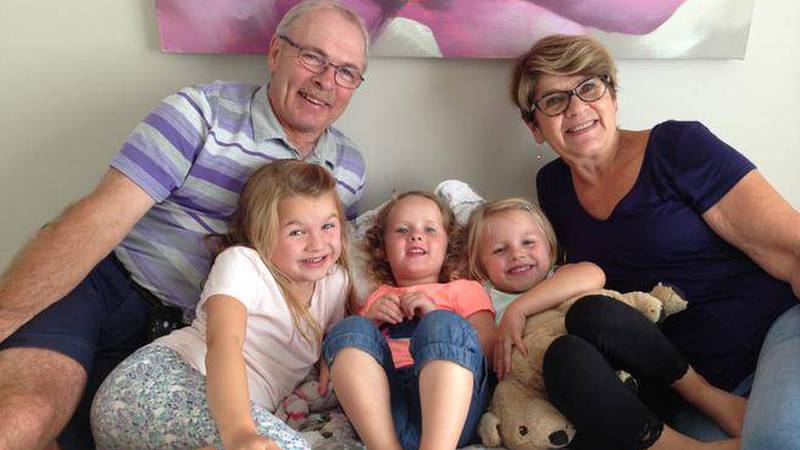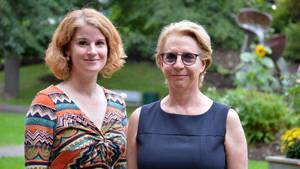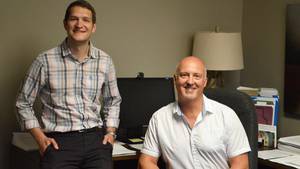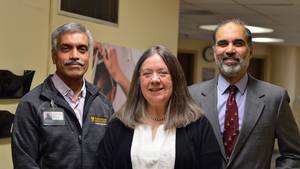When Ivan Douglas learned he had cancer in his larynx, or voice box, his life quickly underwent a dramatic change as he received treatment for the disease.
After receiving 35 radiation therapy treatments, Ivan’s cancer came back a year later.
“They can’t radiate in the same area twice, so the only other option was to remove my voice box,” says Ivan.
Thankfully another option was available: trans-oral laser microsurgery (TLM) at the QEII Health Sciences Centre. Instead of driving to treatment every day for a month and a half, Ivan traveled from his home town of Fredericton, N.B. to Halifax, N.S. for a day surgery with Dr. Mark Taylor.
“Everything was successful,” he says. “I’ve been all clear since then.”
Years later, he remains cancer-free. He’s put that time to good use, spending time with his three very active grandchildren, aged seven, four and three. He says the laser surgery effectively cured him of cancer and left him with a strong voice so he can play with his grandkids.
“I have a lot of faith in Dr. Taylor,” he says.
Dr. Taylor says in his research that 100 per cent of patients prefer laser surgery over radiation.
“People are attracted to the fact that they come in, they have a procedure, and if they’re from out of town they usually spend one night in the hospital. If they are local, sometimes we even let them go home after,” he says. “They can get back to work and whatnot, sooner rather than later.”
There are four stages of laryngeal cancer, with one being the least severe. The disease impacts breathing, talking and eating, and can be fatal if untreated.
Dr. Taylor and his colleague, Dr. Matthew Rigby, say TLM works on over 90 per cent of Stage I and Stage II patients, and half of stage three patients. Those whose cancer is too advanced for TLM rely on radiation and chemotherapy and often lose their voice box.
Dr. Taylor says studies over the last fifteen years provide evidence that the success rate was better for TLM than for radiation. “Not a lot, but it was significant,” he says.
TLM is also more cost-effective to the healthcare system. It also significantly improves the overall patient experience as individuals don’t have to miss 35 days of work for the treatment and return to day-to-day life much quicker.
The procedure takes one to three hours and patients can usually go home the next day on a normal diet, though some may experience hoarse voices for a while. The other benefit of the laser surgery is that it can be repeated if the cancer reoccurs – a patient may only receive one round of radiation therapy.
Dr. Rigby says the main factors in getting laryngeal cancer are smoking or heavy use of alcohol. It’s the second-most common type of head or neck cancer.
Declining smoking rates have reduced cases in that way, but that’s been somewhat offset by an increase in HPV-associated cancers.
“Our biggest concern is to have someone free of disease at five years, and if they’ve gone five years without having it reoccur, they’re considered cured,” Dr. Rigby says.








